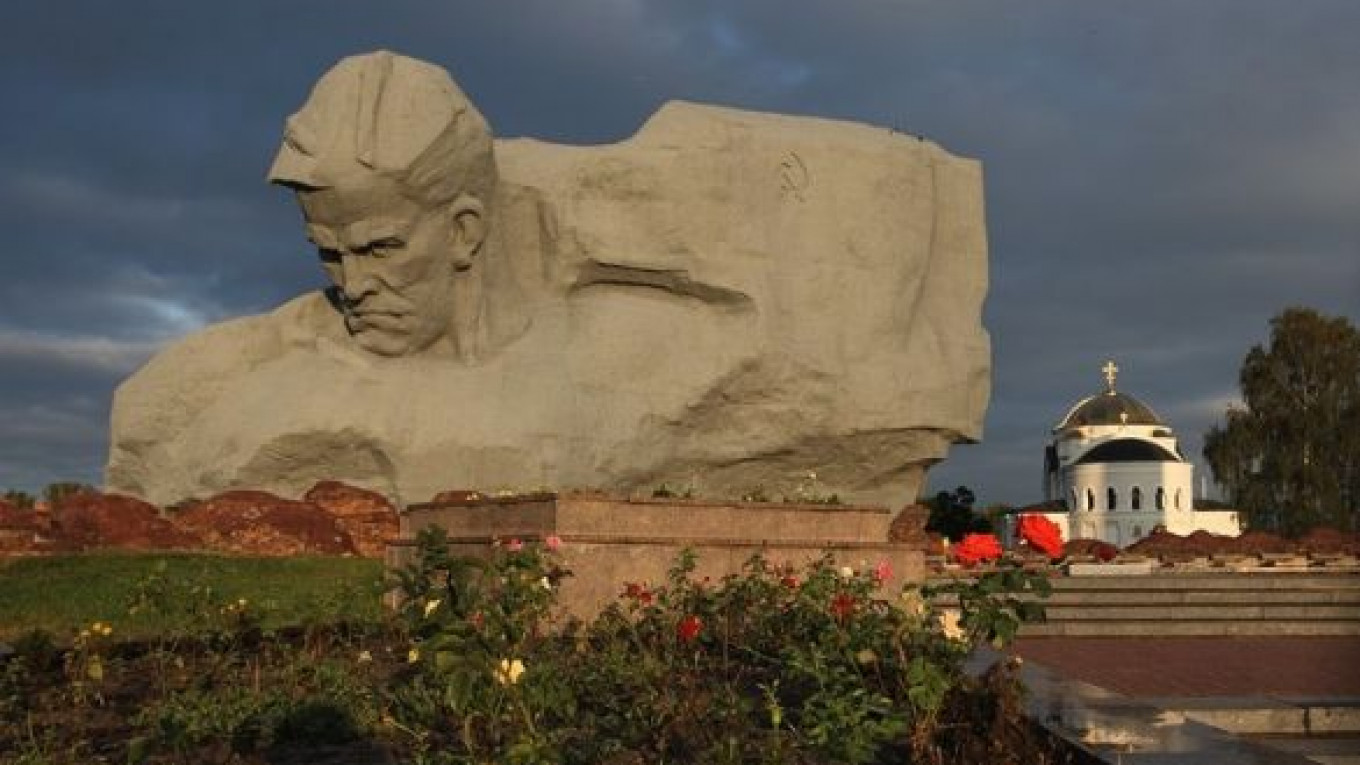An article commenting on the supposed flatulence of a statue commemorating Soviet soldiers who fought in World War II has not gone down well with Russian lawmakers, who argued the criticism made light of the sacrifices made during the war.
CNN apologized on Thursday for including the Courage monument in the Belarussian city of Brest on a list of "the world's ugliest monuments," after Russian lawmakers said that casting doubt on the sculpture's artistic merits also undermined the soldiers' valor.
The television network included the monument in a jocular online article last month about monumental architecture that, it said, blurred the line "between timeless artistic statement and outsized novelty paperweight."
Instead of honoring the people to whom they were supposed to be a tribute, those monuments often served as a "gaudy testament" to the ambitions of their sculptors or of "dictators and selection panels who thought them a great idea at the time," CNN said.
The text of the original article, since revised, said that the statue of the giant Soviet soldier emerging from a mountainous block of concrete in Brest was a "reminder not to mess with Belarus — ever," or that perhaps the soldier just looked "constipated," Russian media reported.
The statement caused an outpour of indignation from several Russian lawmakers who jumped to the monument's defense.
State Duma Deputy Speaker Sergei Neverov, a leader of the pro-Kremlin United Russia faction, called the article "insulting and unacceptable in a normal society."
"At the very least, it is disrespect and sacrilege toward the memory of the millions of the dead, to the veterans and their descendants, to everyone who saved the world from the fascist plague," he said in a comment published on the United Russia website.
Deputy head of the Duma's Constitutional Affairs Committee Rivzan Kurbanov, of the United Russia faction, called the CNN list "blasphemy and abomination," Lenta.ru reported.
"All the nations and peoples regard sneering at monuments as shameful," he said.
CNN said that the article was intended as a "lighthearted look at monumental architecture worldwide."
Any offense it caused " was unintended and we apologize," an editor's note appended to the article said.
Besides the monument in Brest, the compilation of "ugliest monuments" also included a Pope John Paul II memorial in Rome, a Martin Luther King memorial in Ohio, a 9/11 memorial — presented by Russia as a "gift" to the U.S. — in New Jersey, and monuments to pop icon Michael Jackson and to writer Oscar Wilde in London.
No protests by Catholic leaders, African-American rights activists, 9/11 victims survivors, or music or literary buffs were reported.
A Message from The Moscow Times:
Dear readers,
We are facing unprecedented challenges. Russia's Prosecutor General's Office has designated The Moscow Times as an "undesirable" organization, criminalizing our work and putting our staff at risk of prosecution. This follows our earlier unjust labeling as a "foreign agent."
These actions are direct attempts to silence independent journalism in Russia. The authorities claim our work "discredits the decisions of the Russian leadership." We see things differently: we strive to provide accurate, unbiased reporting on Russia.
We, the journalists of The Moscow Times, refuse to be silenced. But to continue our work, we need your help.
Your support, no matter how small, makes a world of difference. If you can, please support us monthly starting from just $2. It's quick to set up, and every contribution makes a significant impact.
By supporting The Moscow Times, you're defending open, independent journalism in the face of repression. Thank you for standing with us.
Remind me later.






